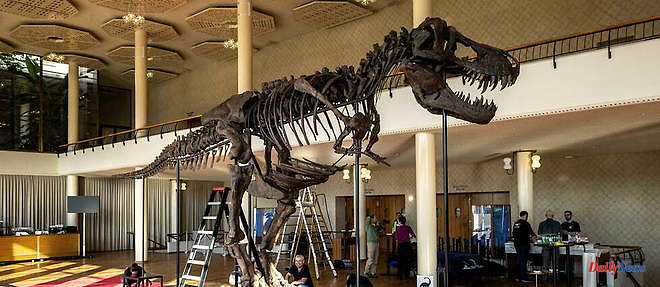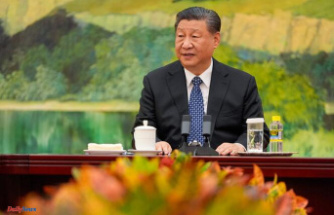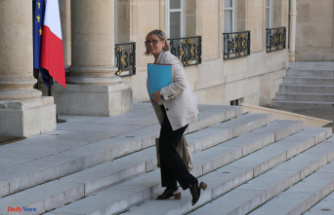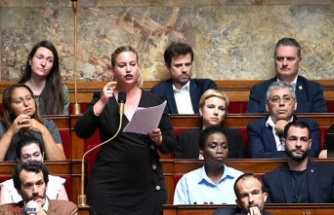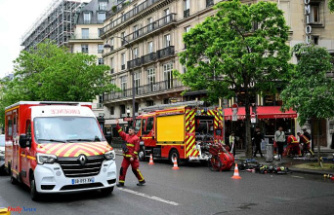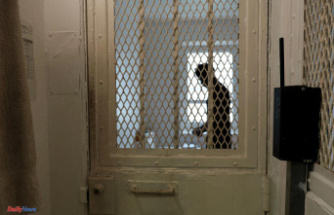Yolanda Schicker-Siber delicately secures a long claw with a thin wire, completing the reconstruction of the skeleton of a tyrannosaurus rex which will be auctioned next month in Switzerland.
A giant puzzle that the curator of the Aathal Dinosaur Museum in Zurich painstakingly assembled over two days with other experts. The bones of the T-Rex, an animal that lived 67 million years ago, traveled from Arizona (USA) to Zurich (Switzerland) in nine giant crates.
Called Trinity, the approximately 3.9-meter-tall and 11.6-meter-long skeleton lays on a red carpet, under crystal chandeliers, in the middle of a Zurich concert hall, where it will be displayed before its sale on April 18.
According to the auction house Koller, its price is estimated between 6 and 8 million Swiss francs (roughly similar amounts in euros). This is a "fairly low" estimate, warned the natural history expert of the house Koller, Christian Link, while we are witnessing a real craze among buyers for this type of relic.
Trinity is actually an assemblage of bones from three different T-Rex found between 2008 and 2013 in formations in Montana and Wyoming, in the northwestern United States, according to the auction catalog.
It was on these sites that two other large T-Rex skeletons were discovered and auctioned: in 2000, Stan was sold for $31.8 million, shredding the previous record set by Sue, sold in 1997 for $8.4 million.
Last year, the auction house Christie's had to withdraw a few days from the sale in Hong Kong another T-Rex skeleton, also from Montana, because of doubts about the authenticity of parts of the fossil.
Reconstituting Trinity was not an easy task, assured Yolanda Schicker-Siber to AFP. “The bones are very, very old. They are 67 million years old. So they are fragile, they have cracks,” she explains then.
Aart Walen, who has thirty years of experience in assembling dinosaur skeletons, agrees. "We haven't broken anything yet," he says proudly, as he and his colleagues work on two large seat bones near the pelvic region, where the eggs come out.
A parakeet perched on his shoulder, Aart Walen fills in the cracks in the bones using what looks like dental tools and modeling clay. "It was important that the repairs were visible," he says, pointing to the dark areas where the cracks were.
"You have to see where the repairs were made. There are fake stories floating around. We don't want that," he adds. It also shows that the sound is different depending on whether it hits the bone or the plastic pieces that completed the skeleton.
Slightly more than half of the skeletal bone material comes from the three tyrannosaur specimens, which is more than the 50% needed for experts to consider such a skeleton to be of high quality.
The Koller house wanted to be transparent about the origin of the bones. “Hence the name Trinity. We make no secret of the fact that this specimen comes from three different dig sites,” says Christian Link.
The seller is an "individual" who wishes to remain anonymous. Sales of dinosaur skeletons regularly enliven auction evenings, even if it means frustrating paleontologists, who see it as one less chance of exhibiting them in museums.
According to Christian Link, however, 95% of known T-Rexes are currently in museums, and if a private collector buys Trinity, he can, if he wishes, lend it to museums. He would personally prefer a Swiss museum to acquire it.
The Swiss Dinosaur Museum Aathal, which Yolanda Schicker-Siber runs with her father near Zurich, unfortunately does not have the means to acquire Trinity. "But if someone buys it and doesn't know where to put it, we have a museum big enough to house a T-Rex," she slips, however.

